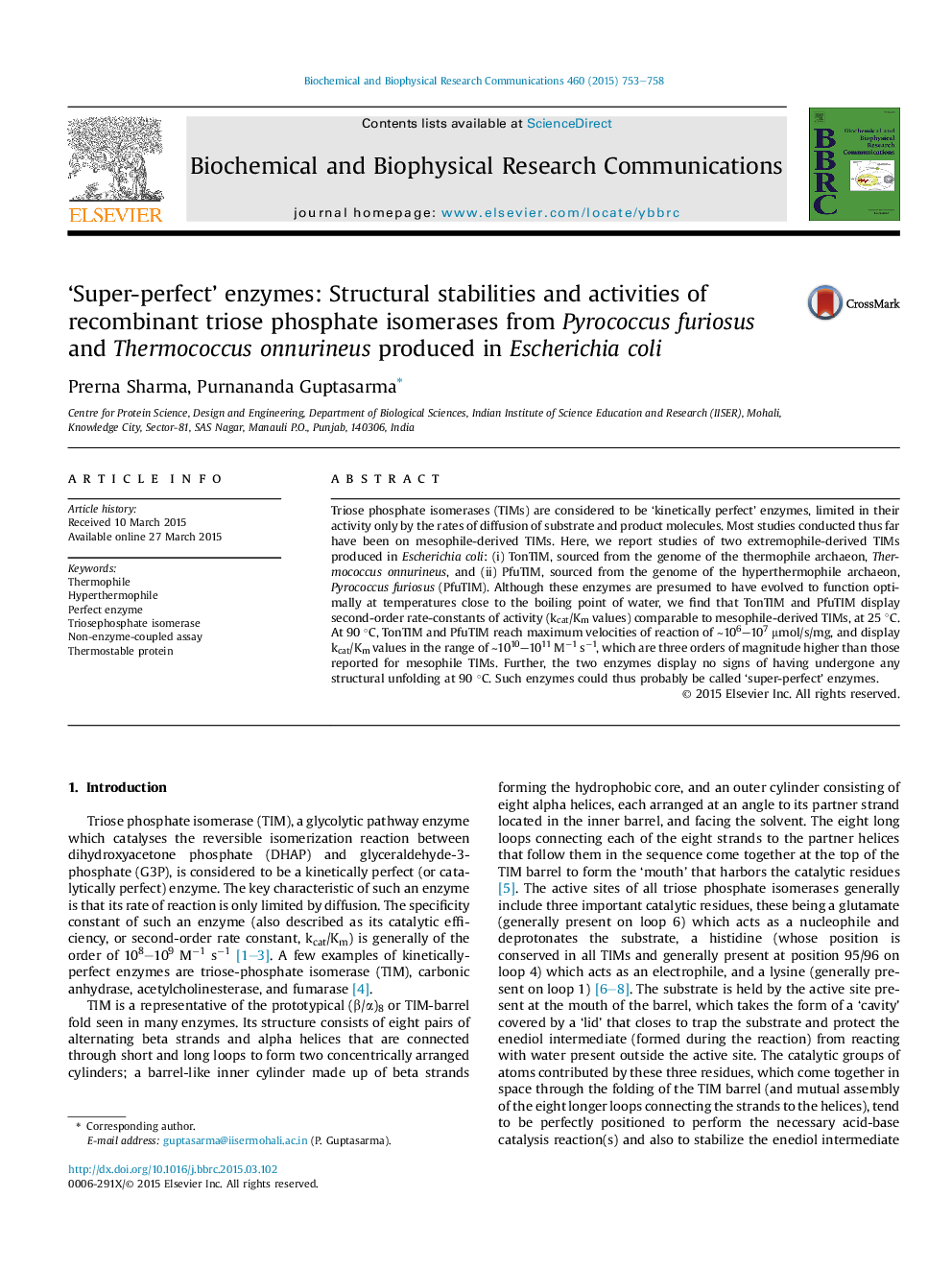| Article ID | Journal | Published Year | Pages | File Type |
|---|---|---|---|---|
| 10752079 | Biochemical and Biophysical Research Communications | 2015 | 6 Pages |
Abstract
Triose phosphate isomerases (TIMs) are considered to be 'kinetically perfect' enzymes, limited in their activity only by the rates of diffusion of substrate and product molecules. Most studies conducted thus far have been on mesophile-derived TIMs. Here, we report studies of two extremophile-derived TIMs produced in Escherichia coli: (i) TonTIM, sourced from the genome of the thermophile archaeon, Thermococcus onnurineus, and (ii) PfuTIM, sourced from the genome of the hyperthermophile archaeon, Pyrococcus furiosus (PfuTIM). Although these enzymes are presumed to have evolved to function optimally at temperatures close to the boiling point of water, we find that TonTIM and PfuTIM display second-order rate-constants of activity (kcat/Km values) comparable to mesophile-derived TIMs, at 25 °C. At 90 °C, TonTIM and PfuTIM reach maximum velocities of reaction of â¼106-107 μmol/s/mg, and display kcat/Km values in the range of â¼1010-1011 Mâ1 sâ1, which are three orders of magnitude higher than those reported for mesophile TIMs. Further, the two enzymes display no signs of having undergone any structural unfolding at 90 °C. Such enzymes could thus probably be called 'super-perfect' enzymes.
Related Topics
Life Sciences
Biochemistry, Genetics and Molecular Biology
Biochemistry
Authors
Prerna Sharma, Purnananda Guptasarma,
